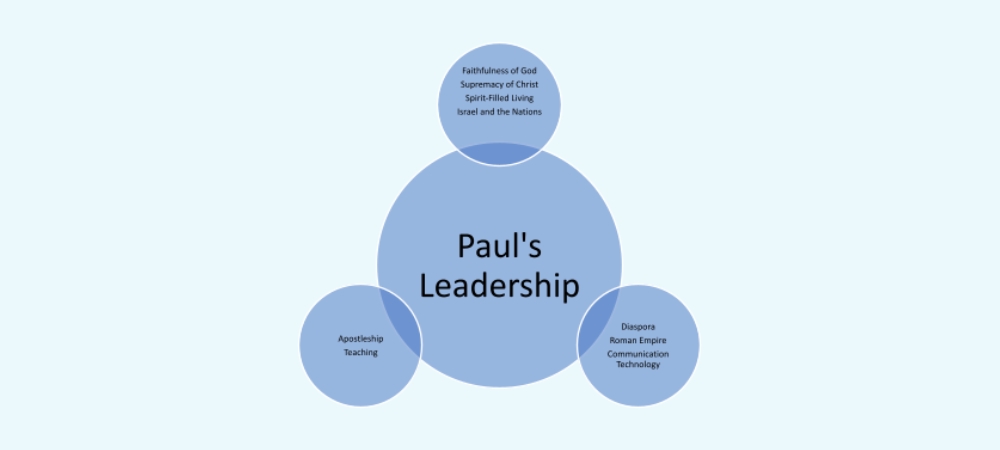Last week we looked at how Scriptural principles and personal giftedness informed Paul’s way of doing ministry.
This week we are looking at ministry context. This is the third factor that impacts our philosophy of ministry. This podcast is evidence of the importance of ministry context and how leaders do ministry.
When I stepped down from leading Every Generation Ministries, I wanted to share some of our key ministry principles with a wider audience.
For my generation that meant writing and speaking. As I engaged with publishers and agents it became apparent that Christian publishers were looking for new authors with a large social media following, extensive e-mail list and website traffic.
If you had those elements, you might have a chance of getting published. As I explored this further, I discovered that people don’t read like they used to.
Younger people get their information digitally and book publishing is shrinking dramatically. Having a large electronic footprint is not a “ticket” to getting published, it is a new avenue that has become the primary means of communicating.
This is merely one example of how ministry context affects ministry leadership.
Having served in ministry leadership for over forty years, some of the other changes that come to mind, all of which affected my own leadership, area the rise of single parenting, computers and gaming, the collapse of the Soviet Union, the internet, smart phones, digital publishing and artificial intelligence.
These are not minor developments but developments that completely altered how leaders do ministry. Take heart, it is not new as we see from Paul.
3 Factors That Figured Heavily in Paul’s Leadership

The situation in the first century was unique in so many ways.
The various factors that made up the Mediterranean world were numerous and again volumes have been written. We can draw out three factors that figured heavily in Paul’s leadership.
1. Diaspora
The Jewish people had spread across the Mediterranean world with groups in nearly every major city.
Synagogues were numerous and wherever one traveled as a Jew, you were sure to find a Jewish community. Under some periods of Imperial rule, the Jewish communities were given certain rights, exclusions, and even protections.
These were stewarded carefully by the Jewish leadership in the diaspora, taking care to make sure that Jewish communities stayed on the right side of the Emperor and his bureaucracy.
2. Roman Empire
The Roman Empire in the first century extended from Spain to the upper reaches of the Nile.
The Mediterranean Sea was essentially a Roman lake, with Southern Europe, North Africa, the Aegean, and the Middle East all under Roman rule.
With the creation of the Roman road, travel was possible across a network of large metropolitan areas. The presence of Roman garrisons and the swift and harsh judgment of Rome made relatively safe travel across the Empire possible.
Roman rule brought a degree of language homogeneity and communication, unprecedented in history.
3. Communication Technology
The scroll had been in use by ancient Israel as evidenced by the discoveries at Qumran.
Parchments, made from animal skins, could be produced anywhere and over time replaced the papyrus scrolls that were from the papyrus plant in Egypt.
The Persians under Cyrus the Great, developed the first postal system, but it was the Roman system facilitated by their roads that is well documented. The cursus publicus postal system was created by Julius Caesar.
As the Roman Empire sprawled across the Mediterranean, communication became imperative. This phenomenon was the backdrop for Pauline letters we have today as he communicated with churches and Christian leaders across the Empire.
Even this 30,000-foot overview shows how biblical principles, giftedness, and ministry context affected Paul’s philosophy of ministry.
3 Questions to Ask When Developing a Ministry Philosophy

Leaders today should carefully consider these three factors in developing their ministry philosophy.
Ask yourself the following three questions:
- What are the biblical principles that are absolutely crucial to me?
- How has God gifted me as a leader?
- What is happening in the ministry context around me that is significant?
I ask these questions regularly and have discovered that all three have changed over the last forty years. The biblical principles have largely stayed the same, but I have studied, learned, and been taught some crucial biblical truths that I was unaware of forty years ago.
For example, after studying for some years, I have become convinced that Galatians is not merely a compact version of Romans focused on justification by faith.
Galatians is about one’s eternal standing with God but is also a letter reminding us of who is justified to be a member of God’s people, God’s family. This has enormous value for children today, many of whom are living in broken homes, single-parent homes, or in some places on the street.
My own giftedness has changed with some gifts emerging that had laid dormant for years. Forty years ago, while serving as a children’s pastor, I had not thought about fundraising.
When Every Generation Ministries was founded in 1993, I realized that God could use me in that manner. I developed biblical convictions about that and was fairly successful in raising resources for our new and growing ministry.
When I stepped down in 2020, EGM was working in sixteen countries on four continents. Most importantly, the ministry context in which I serve has changed dramatically in my lifetime.
Gender issues were largely unheard of forty years ago. The mobile phone had not emerged into the marketplace and the internet was in infantile form.
Computers were not used by the wider public and notebook computers were an innovative technology. Video was expensive as was travel. Single parenting was a developing issue, and the “hurried child” (David Elkind) was becoming an issue.
These and a host of other developments in the wider ministry context greatly affected how ministry was carried out.
This seems so clearly obvious, but an example would be my visiting a Romanian Sunday School class about fifteen years ago. The young teacher was teaching a Bible lesson that I remembered working on with a large collaborative team.
She was teaching the lesson from her iPhone. If you are younger than forty, this is no great surprise for you, but simply normal. For someone my age, this is an amazing development reducing the cost of printing materials, creating access to great Bible teaching materials.
I believe if you periodically examine your biblical principles, giftedness, and ministry context regularly you will develop a dynamic philosophy of ministry. It will not be static year-to-year and certainly not over decades. Change will be required and will be crucial to effective leadership.
My colleague introduced me to preach in his church. When I stepped up the pulpit, I saw a large congregation with a sizable percentage of young people. After the usual preliminary remarks, thank you’s, and prayer I invited the congregation to open their Bibles to Luke 18.
When I looked out it seemed like nearly everyone had a phone or tablet with their digital Bible. Feeling a bit archaic and needing to feel better about myself I proclaimed, “I still like the sound of paper turning!”
At that point, a youngster in the front turned up the volume on his iPad and swept his finger across the screen and out came the loud sound of paper turning. Everyone started laughing …at me.
Effective leaders, like Joseph and Paul develop a dynamic philosophy of ministry based on biblical principles, personal giftedness, and ministry context.
Join EGM-US!
If you're serving in a church in the United States, you can be part of the exciting new launch of EGM-US by hosting a vision meeting in your area, attending a training, or just contacting us for more information about how this could benefit your next generation ministries by contacting us contacting our team at (951)587-3825 or [email protected].
